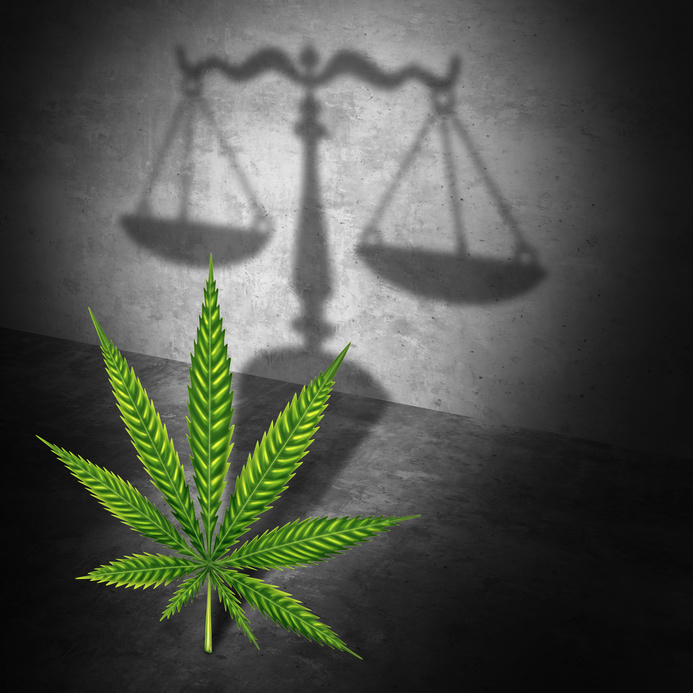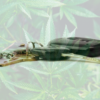- Empty cart.
- Continue Shopping
What is the UK law on CBD products that contain controlled substances such as THC and CBN?

Many suppliers of full spectrum CBD products in the UK openly state that their products contain class B controlled substances, namely THC and CBN.
But which of these CBD products are actually legal to sell and possess in the UK?
There appears to be a lot of confusion surrounding this area of law and many suppliers and consumers are in the dark as to the legal situation.
This article takes a closer look at the legalities of selling CBD products that contain controlled substances in the UK, and details the situations where this is legal, and the circumstances where it isn’t legal.
Disclaimer – we are not lawyers and these musings do not constitute professional legal advice, nor indeed any legal advice – if you need legal advice then you must consult a qualified lawyer!

Most suppliers and consumers of CBD products aren’t even aware that constituents within the products such as CBN (Cannabinol) are class B controlled substances in the UK, so we’ll cover the more familiar THC first.
Unlike CBN, just about everyone is aware that THC is a class B substance – it is in the fact the compound within regular cannabis that gets users intoxicated.
Many suppliers (not just in the UK, but also in other EU countries such as France and Germany) mistakenly quote EU law as applying to CBD extracts, and say that so long as the % content of THC within the CBD component of a product is less than 0.2% then it’s perfectly legal to sell and possess in the UK, or in their respective countries.
This is actually an incorrect and legally dangerous belief to have.
The EU law surrounding this states that if a Cannabis Sativa plant contains less than 0.2% THC then it is industrial hemp and if it contains more than 0.2% THC then it is cannabis.
This 0.2% limit has nothing to do with extracts and preparations of CBD. Nothing at all. It is simply the legal definition of an industrial hemp plant if that plant has less than 0.2% THC content – and even then you still need a license to grow the hemp legally in the EU. This demonstrates that the much proclaimed 0.2% THC limit has nothing to do with whether a CBD extract is legal or not.
So what does UK law actually say about this?
Regulation 2 of the The Misuse of Drugs Regulations (2001) says that if certain criteria are fulfilled, then up to 1mg of a controlled substance is allowed within a product container without that product being rendered illegal.
So therefore, any product that has more than 1mg of a controlled substance per container (the Home Office state that they consider “container” to mean per package/bottle/bag etc, not per dose) is definitely therefore illegal itself.
Now what about CBN and other controlled cannabinoids?
CBN is a controlled substance in the UK so the 1mg per container limit also applies.
Furthermore, some full spectrum products may contain THC-A, which whilst not being controlled itself readily degrades into THC.
Readers may be now wondering where this leaves suppliers and consumers of full spectrum CBD products that contains substances such as THC, CBN and THC-A.
Well the levels of THC, THC-A and CBN may well in many retail products be under 1mg per container, especially in the lower strength 250mg or 400mg products.
But lets take a not too unusual example – a full spectrum CBD oil product, 10ml bottle, containing 500mg CBD (5%).
If the THC content is 0.2%, right on the limit, then there will be exactly 1mg of THC in that bottle assuming the manufacturer used precisely 500mg CBD extract. So this would be just about legal.
However, if it was a 1000mg / 10% full spectrum CBD oil product in 10ml bottle then it would contain 2mg THC at the concentration of 0.2%. This would be double the legal limit and risk both the supplier and their customers being prosecuted if the product was ever tested by the authorities. Of course if the concentration of THC in the CBD was less than 0.2% then there would be less than 2mg of THC in the product.
Looking at real laboratory analysis data published by some suppliers of their products, in some cases the 1mg limit is indeed being exceeded. I’m sure this is largely done inadvertently because the actual UK laws that are described in this article are not widely known to many suppliers, especially ones who are new to the market.
For more information, please read the Home Office fact sheet that can be found here.
Our CBD products just contain CBD and have no controlled cannabinoids in them; therefore, UK customers can be confident that the cannabis derived food supplements purchased from us are fully legal CBD product items. We do not claim to sell medicinal products (medical marijuana) which help the body’s immune systems; neither do we promote any of our products as pain relief products or anti inflammatory products.
Thanks for visting our blog and if you made it this far, congratuations – here’s a 15% discount code that can be used when ordering any products – LAWBLOG15
For further reading we would recommend our article Will CBD Show up on a Drug Test.
Copyright © CBDology 2019



